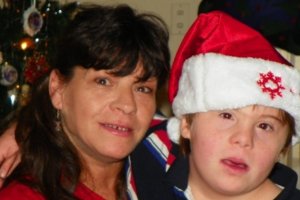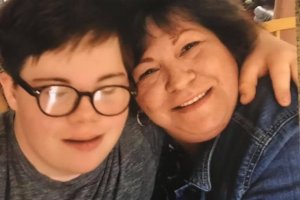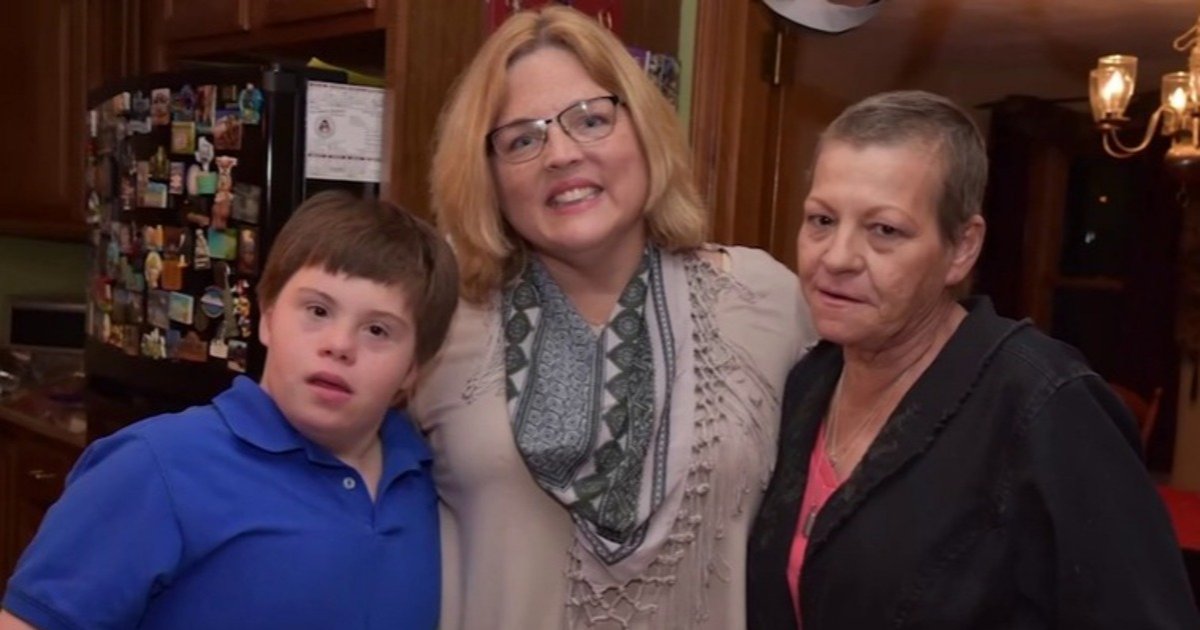A terminal cancer diagnosis can be devastating, especially for single parents not sure who will look after their children when they’re gone.
One such parent, Jeanie Manning, a Massachusetts mom diagnosed with terminal breast cancer, had an extra layer of stress: Her son, Jake, has Down syndrome. But an unexpected person stepped in, first to lend support, and then, when Manning passed away, to adopt Jake: Kerry Bremer, a teacher at Jake’s school.
Read More
Manning and her son met Bremer after moving to Massachusetts from Florida to get the treatment that she needed for her illness, according to a Go Fund Me page set up by her close friends. (The page was created after her death to help raise funds for Jake’s care.) She had worried about finding him the appropriate school when they moved, the page explained, but that fortunately “along this route, Jeanie and Jake met and bonded with an amazing teacher that would soon become more than just a teacher to the Manning family.”

At first, Manning and Bremer spent time helping Jake get used to the people who would become his new family.
“When I first met him, back when he was in Kerry's class, it was fun,” Dave Bremer told WCVB. ?But when we first decided to do this and I met him, it was, ‘You're dad? You're Dave the dad?’ And that was it. For a very long time, I was ‘Dave the dad.’"
When Manning died recently in her sleep after a chemotherapy treatment, Bremer and her family took him in.
“My mom went to heaven,” Jake told the outlet. “She’s always in my heart. She loves me so much.”
Coping after a Cancer Diagnosis
There are many challenges to deal with after receiving a cancer diagnosis, including the emotional toll it takes on patients and loved ones. Anxiety and fear are normal reactions to the news of cancer, and acknowledging these emotions can be therapeutic and important to the healing process, say experts.
"I think the most important advice I would give to someone who has just received a cancer diagnosis is to find people whom they find as a source of support — to allow themselves to go through all of the different emotional reactions to that news," said Dr. Susan Parons, director of the Center for Health Solutions/Center on Child and Family Outcomes at Tufts Medical Center, in a prior interview with SurvivorNet.
"The anger, the frustration, the fear, the disappointment — whatever those emotions are, figure out what's important to you and find those people that can help you realize that,” she said.
Dr. Susan Parons, Director of the Center for Health Solutions/Center on Child and Family Outcomes at Tufts Medical Center on dealing with fear and anxiety after a cancer diagnosis.
A few of the most common ways to deal with fear and anxiety after a cancer diagnosis include:
1. Let your family and close friends know and let them help. So many cancer survivors tell SurvivorNet they want and need support but are often too preoccupied to make specific requests. Urge those close to you to jump in with whatever practical help they can offer.
2. Keep a journal. It can be extremely cathartic to let those feelings loose on paper. Grab a pen and a nice journal and chronicle your thoughts throughout the day.
3. Join a cancer support group. There are groups in nearly every community offering opportunities to connect with people who are going through a similar journey. You can learn what to expect, how to stay strong on tough days and more.
4. Consider seeing a therapist. Ask your doctor to refer you to a therapist so you can discuss your fears and concerns in a safe space. Often, vocalizing your thoughts and feelings rather than internalizing them can provide some relief.
Learn more about SurvivorNet's rigorous medical review process.


